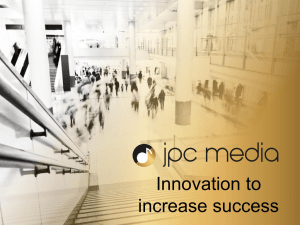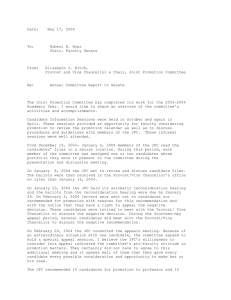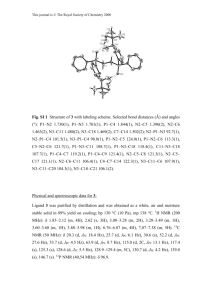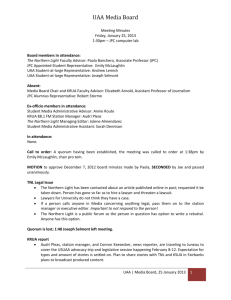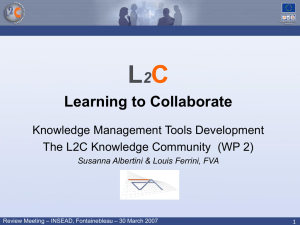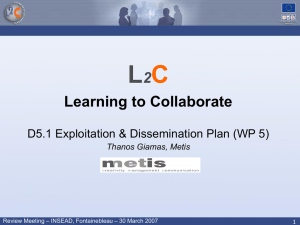Proposal Writing workshop
advertisement
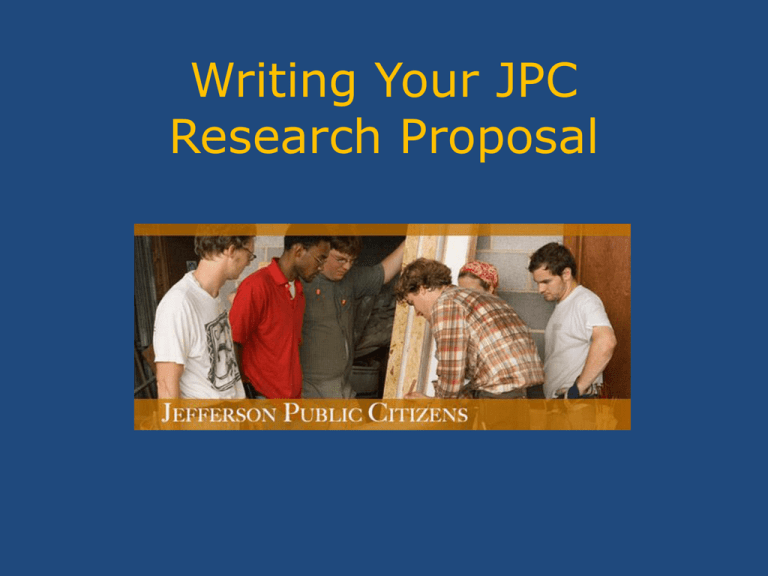
Writing Your JPC Research Proposal Purpose of a Proposal • Introduces your topic • Tells anyone who reads it why you want to do the research Why it is important? • Addresses the “so what” factor • Proposes a question to study Purpose of a Proposal • What you are going to do and how you are going to go about the work? • How you are going to analyze what you find? • A good proposal presents sufficient material to convince readers that the study is worth doing that you know what you’re doing Elements of a Proposal • • • • Identify the Problem Relevant Literature (informs the problem) Question (how you will address the problem) Methods (your strategy for answering the question, includes a discussion of how you will collect and analyze your data) JPC proposals should also describe the service aspect of their project Example JPC Proposal Is the problem clearly stated? What is the research question/hypothesis? What methods will they use to address this hypothesis? What data will they collect and how will they analyze their data? What are the intended outcomes of the study? Are they clear? Will it benefit the community and if so how? Do the authors clearly describe what they are going to do? The JPC application • Application form Budget Proposal narrative JPC team member application The JPC application (continued) • Recommendation letter from faculty advisor • Project endorsement letter from community partner • Unofficial transcripts •Preliminary work plan Considerations • Audience • Requirements from application – Follow instructions! • Writing (style and grammar) • Role of the community partner “I have made this letter longer than usual, only because I have not had time to make it shorter.” Blaise Pascal, 17th-century French philosopher and mathematician Tips for a Successful Proposal • Work in collaboration with your faculty advisor • Answer the “W” questions, Who, What, When, Where • Have someone unfamiliar with your project read your proposal • Be specific about outputs and outcomes Tips for a Successful Proposal • Community partners should be involved at the earliest stages • Research processes and outcomes should benefit the community • Productive partnerships between researchers and community members should be encouraged to last beyond the life of the project Questions Brian Cullaty Assistant to the Vice Provost for Academic Programs (434) 924-3306 brc7q@virginia.edu
